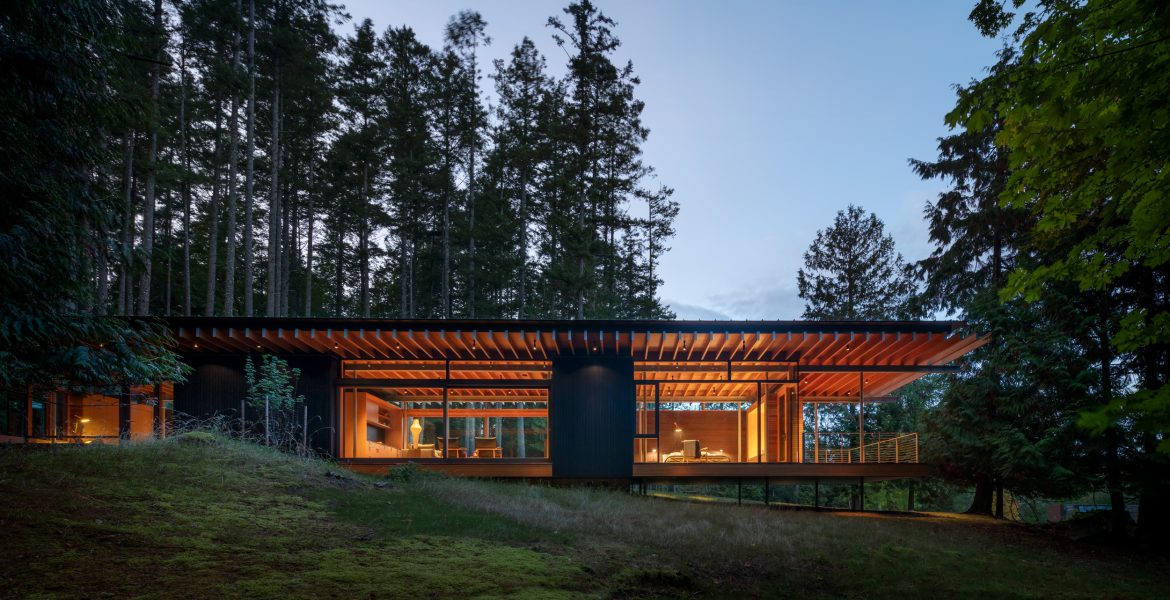The RD Architecture Awards recognize excellence in custom residential architectural design.
This is a different kind of awards competition that covers the breadth and scope of work by talented residential architects and architectural designers. We understand that contemporary and contextual projects are sometimes difficult to judge against each other. We have, therefore, created two different paths of entry. In addition to categories based on location and scope of design, we’ve created categories specifically for contextual, vernacular, or traditional work to encourage submission of these projects to the program and to the magazine. Modern work will be judged against modern work; traditional work against traditional work.
This is not a web-only awards program.
All winning projects will be published in the print edition of Residential Design magazine distributed at the AIA Conference on Architecture, and published in the digital edition of the magazine and on RD’s website.
All entries will be judged by an independent jury of architects.
Online coverage of our previous program, 2024 RDAA can be viewed here. And a digital facsimile of the print edition coverage can be seen here.
Click here to go directly to our awards registration site and view requirements.
The regular deadline to register your entry is January 16, 2025 at 11:59 p.m. CT.
The late deadline ($50 late fee required) to register your entry is January 23, 2025 at 11:59 p.m. CT.
The Final deadline to submit all entry materials is February 6, 2025 at 11:59 p.m. CT.
Eligibility
All entries must be submitted by or on behalf of an architect or architectural designer.
The competition is open to residential projects within or outside the United States of America.
Projects completed on or after January 1, 2020, are eligible for entry.
Projects may be entered in multiple categories, if they conform to the category criteria.
Projects that have appeared previously in Residential Design or have won awards in other competitions may be entered if they meet all other eligibility criteria.
All entered projects must be professionally photographed at the time of submission (On the Boards projects are the exception).
To receive an award, all winning entrants must complete a detailed products specification form prior to the print publication deadline.
Special note: This a residential design excellence program that welcomes all styles of architecture. We do recognize that traditional projects and contemporary projects are sometimes difficult to judge against each other. We have therefore created categories specifically for contextual or vernacular work to encourage submission of traditional projects to the program and to the magazine.
However, we invite firms to enter projects where they feel they can best compete, and we will give jurors broad discretion to move them where their strengths can shine. Both modern and traditional work will be considered for the top honor of Project of the Year, and jurors will be given discretion to select one modern work and one traditional work for Project of the Year, if they so choose.
Fees and Deadlines
$150 per standard entry
$125 per special entry
The regular deadline to register your entry is January 16, 2025 at 11:59 p.m. CT.
The late deadline ($50 late fee required) to register your entry is January 23, 2025 at 11:59 p.m. CT.
The Final deadline to submit all entry materials is February 6, 2025 at 11:59 p.m. CT.
Residential Standard Entry Categories
$150 each entry
- Custom Urban House
Houses located in cities, close-in suburbs, or towns. These houses respond to context in an inventive, expansive way, while balancing the need for privacy and connection to city life.
- Custom Rural or Vacation House
Houses unburdened by existing context and/or by the programmatic constraints of a primary dwelling, and that mine the unique benefits of their scenic locations.
- Custom Period or Vernacular House
Houses that respond directly and sensitively to existing architectural context, building conventions, or tenets of traditional and classical design. These projects are welcome in the Urban and Rural house categories as well.
- Renovation
Substantial additions or alterations to an existing home; also, whole-house remodels.
- Custom Period or Vernacular Renovation/Restoration/Preservation
Substantial additions and alterations to or restoration/preservation of an existing home where the goal is to honor, replicate, and/or enhance the original style. These projects are also welcome in the Renovation category.
Residential Special Project Categories
$125 each entry
- Architectural Interiors
Whole-house interiors and apartment interiors, or outstanding special rooms, such as wine rooms, kitchens, baths, game rooms, offices, mudrooms, and the like.
- Architectural Details
Significant custom-designed and crafted details or focal points of the house. Custom fireplaces, staircases, ceiling details, scuppers, window seats are some examples.
- Custom Outdoor Living Design
Projects that extend living, dining, or cooking areas beyond the interior of the home and integrate indoor/outdoor spaces.
- Custom Accessory or Outbuilding
Detached guest houses, studios, garages, pool houses, boat houses, architectural follies are some examples.
- Residential Special Constraints/Conditions
Single-family and low-rise multifamily dwellings (under 5 stories) built to rigorous sustainable standards programs, stringent architectural review, or pattern book; adaptive reuse to residential; mixed-use that includes residential; universal design; affordable, extraordinary budget or size constraints, residential pro-bono projects; prototype dwellings or projects that employ and explore special construction technologies.
- Custom On the Boards
Unbuilt single-family residential projects of any scale and style, commissioned by a client. These projects should be fully conceived and clearly presented with compelling visuals.
Residential Design Project of the Year
The jury will choose an overall project of the year from among the built project entries.
Both modern and traditional work will be considered for the top honor of Project of the Year, and jurors will be given discretion to select one modern work and one traditional work for Project of the Year, if they so choose.
About the Jury Process
All entries will be judged by an independent jury of architects selected for geographic and aesthetic diversity.
The jury will be given broad discretion to move projects to different categories. The jurors may also combine categories or create new ones to better showcase award-worthy entries. Further, they may give more than one or no awards in each category, if they so choose. The judging will take place in mid-February, and winning projects will be published in Volume 3, 2025 of Residential Design magazine and on this website.


